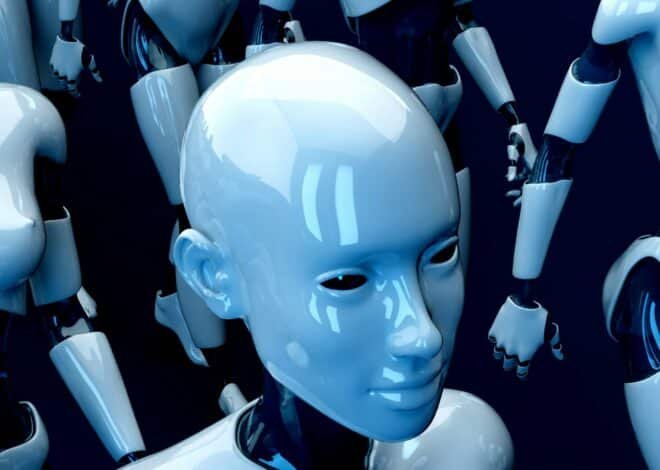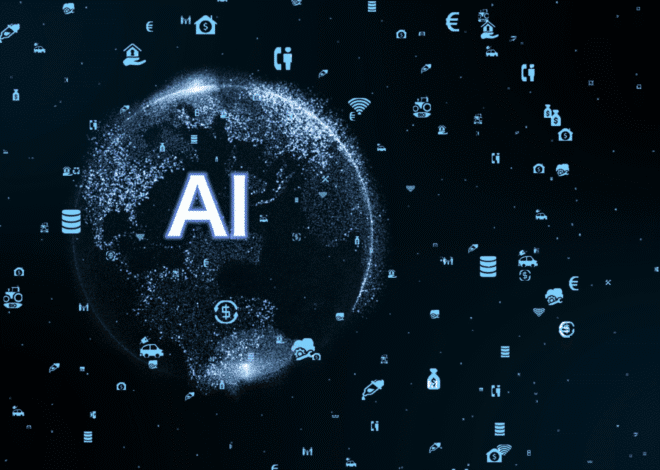
AI Agents: The Next Frontier in Artificial Intelligence

Understanding AI Agents: Definition and Functionality
AI agents represent a significant evolution within the realm of artificial intelligence, characterized by their autonomous capabilities and interactive nature. Unlike traditional AI tools, which typically rely on predefined algorithms and manual input, AI agents possess the ability to operate independently, learn from their environments, and adapt their behaviors based on experiences. This fundamental shift allows them to execute tasks with a level of autonomy that was previously unattainable.
At their core, AI agents are designed to make decisions by evaluating accumulated data, which enables them to perform complex tasks in real-time. The backbone of their functionality is often supported by advanced technologies such as machine learning, neural networks, and natural language processing. Machine learning empowers these agents to improve their performance through experience, allowing them to recognize patterns in data and adjust their actions accordingly. Neural networks facilitate the processing of this data in a way that simulates human cognitive functions, enhancing the agent’s ability to make informed choices.
Natural language processing (NLP) adds another layer to the functionality of AI agents, enabling them to comprehend and interact using human language. This capability opens the door for applications in customer service, personal assistants, and intelligent systems that can communicate effectively with users. Industries ranging from healthcare to finance are beginning to realize the potential of AI agents, leveraging their strengths in data analysis, predictive modeling, and decision support.
Overall, the emergence of AI agents marks a transformative advancement in artificial intelligence. Their ability to learn, adapt, and interact autonomously positions them as powerful tools in various sectors, fundamentally changing how tasks are approached and executed in a multitude of contexts.
The Evolution of AI: From Traditional Tools to Intelligent Agents
Artificial intelligence (AI) has undergone significant transformation since its inception, evolving from rudimentary programmed algorithms to sophisticated intelligent agents. The journey began in the mid-20th century when early AI systems were developed, primarily focusing on rule-based programming and simple problem-solving. These initial models effectively executed predetermined tasks but lacked the ability to learn or adapt to new information.
As technology progressed, researchers began exploring more complex methods, including machine learning. This marked a pivotal shift, allowing systems to identify patterns within data and improve their performance over time. The introduction of neural networks further advanced the field, mimicking the human brain’s structure and function. By leveraging large datasets and increased computational power, AI systems started to exhibit remarkable capabilities in recognizing speech, image processing, and natural language understanding.
Several milestones have been critical in shaping the current landscape of AI. The development of the Internet paved the way for vast data availability, which is crucial for training machine learning models. Simultaneously, advancements in hardware, such as graphical processing units (GPUs), have facilitated the execution of complex algorithms at unprecedented speeds. These innovations have contributed to the birth of smart AI agents capable of self-learning and real-time decision-making.
However, despite these advancements, traditional AI tools face limitations. Many remain confined to specific tasks and lack the ability to generalize knowledge across diverse domains. As a result, the demand for robust intelligent agents that possess the capability to understand context, reason logically, and act autonomously has intensified. Addressing these shortcomings is essential as AI technology evolves, paving the way for an era where intelligent agents can adapt to intricate environments and contribute significantly to various sectors.
Applications and Impact of AI Agents Across Industries
AI agents are rapidly transforming various sectors, demonstrating their efficacy in enhancing operational efficiency and decision-making. One of the most prominent applications arises within the healthcare sector, where AI agents assist in diagnosing diseases, analyzing patient data, and personalizing treatment plans. For instance, IBM’s Watson Health exemplifies how AI can support healthcare professionals by sifting through vast medical literature to provide evidence-based recommendations, thereby augmenting clinician capabilities and potentially improving patient outcomes.
In the financial industry, AI agents have proven invaluable for streamlining processes, enhancing risk assessment, and detecting fraudulent transactions. Institutions like JPMorgan Chase utilize AI-driven systems to analyze transaction patterns, helping to identify anomalies that may indicate illegal activity. This deployment not only safeguards assets but also instills greater confidence among consumers regarding the security of their financial data.
The retail industry has also embraced AI agents, leveraging them for inventory management, customer service, and personalized marketing. Companies such as Amazon employ AI agents to analyze consumer behavior, enabling the recommendation of products that align with individual preferences. This not only heightens customer satisfaction but also drives sales growth through tailored shopping experiences.
Logistics, too, is undergoing a significant transformation as AI agents optimize supply chain management. With tools like predictive analytics, firms can anticipate demand fluctuations and streamline their operations accordingly. For example, FedEx employs AI to optimize delivery routes, improving efficiency and reducing operational costs.
While the advantages of AI agents are substantial, their integration introduces challenges, particularly in job markets and ethical considerations. The displacement of certain jobs due to automation raises questions about workforce adaptability. Furthermore, issues surrounding data privacy and bias in AI algorithms necessitate thoughtful dialogue to promote responsible AI usage. As industries continue to embrace these advanced technologies, it is imperative to balance innovation with ethical practices and societal impact.
The Future of AI Agents: Challenges and Opportunities
The realm of AI agents is continually evolving, presenting both significant challenges and promising opportunities for researchers, developers, and society at large. As AI agents become increasingly integrated into various applications, scalability becomes a paramount challenge. The ability to deploy and manage a growing number of AI agents across diverse platforms requires robust infrastructure, advanced algorithms, and meticulous planning. Researchers are tasked with developing systems that can seamlessly integrate new agents into existing ecosystems while maintaining efficiency and performance.
Moreover, security concerns pose a critical barrier to the widespread adoption of AI agents. As these systems become more sophisticated, so do the potential risks associated with their deployment. Cybersecurity threats can compromise the integrity of AI systems, leading to data breaches or misuse of sensitive information. It is essential for developers to implement stringent security protocols and to remain vigilant in monitoring for vulnerabilities. Addressing these challenges is imperative to ensure that the benefits of AI agents are not overshadowed by risks.
Ethical implications also warrant significant attention, as the decision-making capabilities of AI agents may affect employment, privacy, and human autonomy. The deployment of AI agents raises important questions about accountability and transparency. As stakeholders navigate this new frontier, striking a balance between technological advancement and ethical considerations will be crucial in building public trust and acceptance.
Despite these challenges, the future of AI agents is filled with opportunities. Businesses can leverage AI agents to enhance customer service, streamline operations, and derive insights from vast amounts of data. Innovations such as autonomous agents are paving the way for advancements in numerous sectors, including healthcare, finance, and transportation. As society embraces these developments, the integration of AI agents into daily life could lead to transformative changes, prompting critical discussions on how to navigate an increasingly automated landscape.


